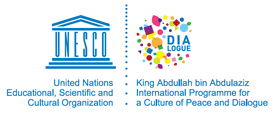BACKGROUND AND RATIONALE
Teachers will have been exposed to the basics of media and information literacy (MIL) in the introductory unit of Module 1 and subsequent units. The purpose of this module is to show that many other important information skills are vital components of MIL.
This module emphasizes the building blocks that contribute to information literacy. Many courses concentrate on the delivery of knowledge rather than on learning how to learn. However, the increasing emphasis on the value of MIL in education and the wider society highlights the importance of users being skilled learners. This means learning how to recognize their information needs; efficiently and effectively locate/retrieve information; analyze, organize, and evaluate this information; and use, apply, reproduce and communicate that information for specific decision-making and problem-solving ends (UNESCO, 2008).
Teachers have to acquire for themselves and develop in their students a set of competencies (knowledge, skills and attitudes) for obtaining, understanding, adapting, generating, storing, and presenting information for problem analysis and decision-making. These are competencies applicable to any teaching and learning context, whether in the education environment, general work/professional environment or for personal enrichment. A media- and information-literate teacher is capable of understanding information and media messages from different information sources and is able to evaluate and use that understanding appropriately to solve problems. He or she has also acquired basic library skills and is capable of maximizing the use of documentary resources for learning and information sharing. The media- and information-literate teacher understands and appreciates the functions in society of media and other information providers, such as
libraries, museums, archives, the Internet, and educational and research institutions working in this field.
Information providers offer an important service for people to access and in some cases store their own information. Beyond the media, there are other sources of information that people use, (e.g. health notices, government reports and information communicated orally, both informally and through public debates). These may be carried electronically, (e.g. as election debates on television) or in face-to-face sessions (e.g. town hall meetings). These events may be mediated by ‘the media’ or by people. Essentially, MIL also embraces library skills, study and research skills, and technology skills.
This module focuses on developing understanding and skills in information literacy, library skills and digital literacy for problem-solving and decision-making in educational contexts. It intends to enable teachers to understand the concepts of information, information literacy and digital technology and the relationship between these in order to increase their skills in accessing and using the wide range of information resources available in today’s world. Gaining these skills will provide opportunities for life-long learning through information access, thus ensuring teachers’ continued participation in an active intellectual life.

